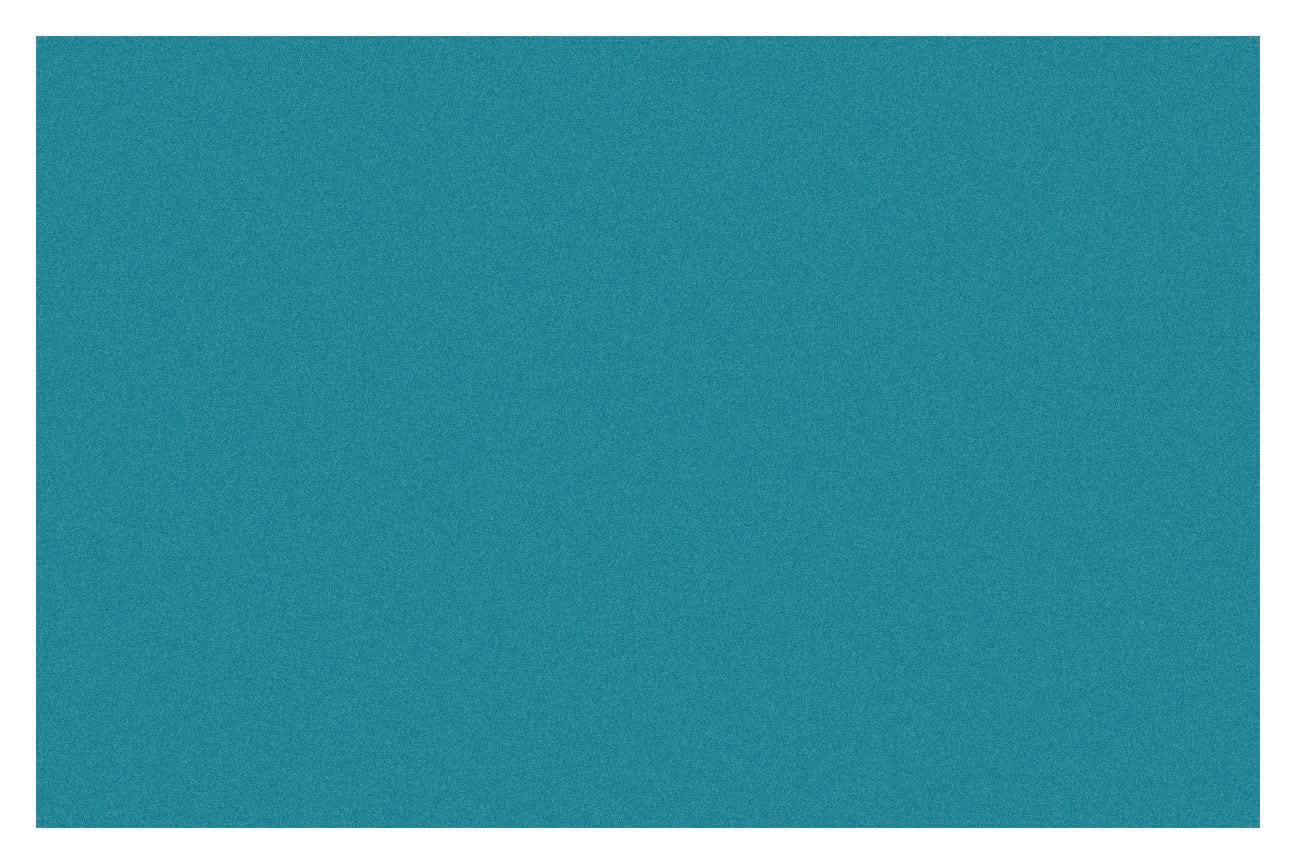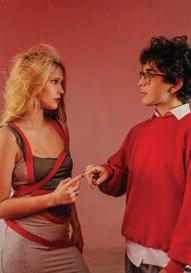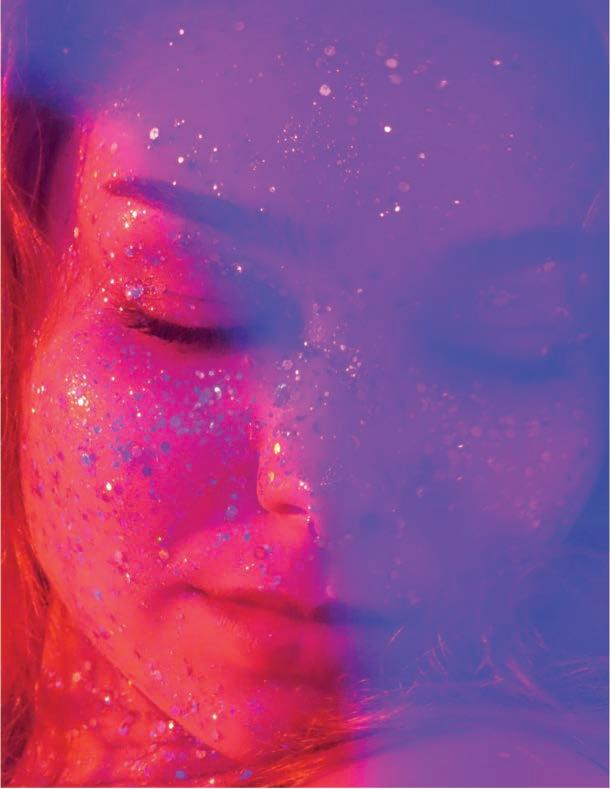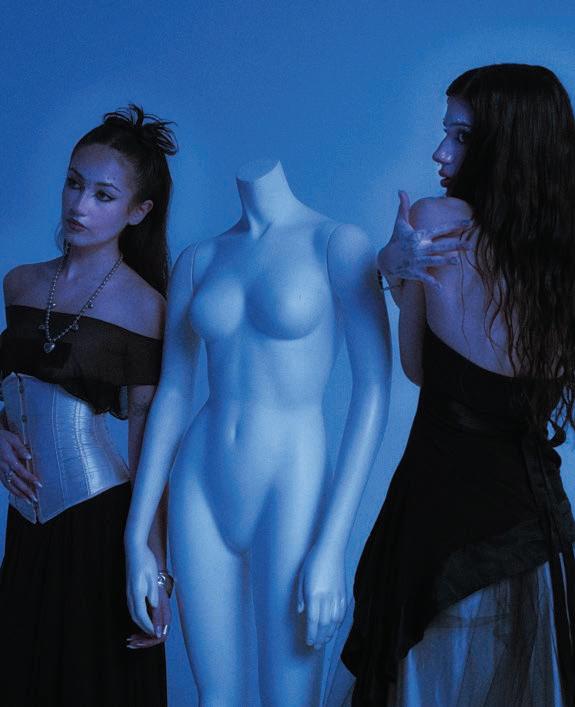










executive board
editor in chief: anthony piccolo
creative director: desa dragovich
pr director: simone wanamaker
eic assist: mina dinh
cd assist: annakathryn shelton
pr assist: lauren bailey
shoot directors
josh owens
abby warnock
pearson cappa
angelika ziemecki
chloe harbin
digital directors
el bey & mia rosolia
allye hampson & sophia poole
viviana vargas & sydney lyell
casey erickson & allison beltrani
shoot assistants
shadaria jackson
brianna lapella
paula flores
lisa henker
lulu apmann
samantha blicker
rebecca alizo
merri slaughter
emily perl
zoe silva
laura gutierrez
gabriella chen
gillian brenner
caroline symons
brianna cloutier
izzy manzione
emily keckley
jennifer mai
ashley harrop
mua
*marisa vercamen
rileigh skinner
daniella chantra
samantha goldberg
em ezerski
videographers
addy lee elliot
emma dooley
william gragg
photographers
barbara kopec-jewula
jocelyn campo
joey harbour
max mitchell
collin chen
jackie ouelle e
adrian valdes
maria penalver
styling team
*lauren vives
bella puleo
allye hampson
grace friedlander
allison pryor
bela jahnes
caroline symons
julia coleman
shannon kern
isabelle medina
*indicates director
events & sales
laura gutierrez
rachel soued
carolina castro
han le
nina valdes
kennedy knight
gabriella martinez
mae nayudu
amanda graham
jewel alexa lopez
bella stelle
solana rudnitsky
gabriella chen
gillian brenner
daniella garcia-novas
julia coleman
julia weiss
kyra derato
zoe silva
mia benshimon
writers
*sarah bourloukas
lulu apmann
jade brant
victoria mcgaha
samanatha getchell
sale e cambra
isabelle kim
emily keckley
clara celedon
grace o’hanlon
daniella garcia-novas
graphic designers
alyssa gonzalez
jade brant
paula valenzuela
kota dupree
visual artists
allison pryor
carmin kilapatrick
kota dupreee
ashley harrop
skyla hendrikson
social media
brianna lapella
samantha blicker
sydney lyell
rachel soued
carolina castro
han le
nina valdes
mae nayudu
jewel alexa lopez
bella stelle
solana rudnitsky
victoria mcgaha
samanatha goldberg
ava linkin
daniella chantra
callie cinco a
shannon kern


As a society, we look to one another for inspiration, for examples, and to create a sense of comfort. Our style is our armor. As we go through the phases of life, everyone is connected to their own personal style. We are attracted to certain colors, textures, fits, and we begin to understand who we are and how we want to express ourselves. Our senses naturally attract us to different elements in fashion, meanwhile we are subjected to the uncontrollable elements of the world. We don’t know what tomorrow will bring, and that is the one thing that every human universally.
This inevitable unknowingness connects us like the webs of a spider. The thread of the cloth that holds our clothes together links us to one unspoken ways.
The comfort of walking down the street and recognizing your taste in someone else’s outfit exudes a blooming warmth in your chest. It’s an unspoken communication of “I see you, you see me”. The crinkle of jeans, the force of steps made by platform boots, the glimmering shine that protrudes off the hardware of a purse - the small details that spark our senses into ignition. These little aspects that come about when admiring someone’s style, although seemingly accidental, are not done by mistake. Our visual influences, tactile experiences, auditory associations all combine into one influence in our subconscious.

Shaped by the environments we cascade through during our lives and the sensory experiences that swirl around us, style is an ever changing aspect that evolves with us as we go through life. The places we live, the cultures we engage with, and the people we encounter all have an influence on how we will present ourselves to the world. Senses are what patterns catch your eye, what material comforts your skin, and what scent brings you back to your favorite memory. Being able to express your inner self
through style is a makeup for not being able to hold memories in your hands.
The trends we adopt and the pieces we gravitate toward become markers of the time and space we inhabit, telling stories of where we’ve been and where we aspire to go. Each choice, whether conscious or instinctive, becomes a part of the greater collective narrative—a visual language that we share with those around us. In this way, fashion becomes more than just personal expression; it’s a dialogue, a means of
communicating oursharedexperiences andindividualityina worldthat’sconstantly shifting.Whatwewear allowsustoboth embrace changeandholdonto moments,linkingusnot onlytoourpastselves buttothewider community,whose styleswesilently appreciateandadoptas ourown.The oursurroundings subtlyguideustoward stylesthatreflectour personalgrowthand our ever changingperceptionsof theworld.












Photographers: Adrian Valdes & Barbara Kopexc-Jewula


































Directed by: Viviana Vargas & Sydney Lyell


The blackberries in my bowl are ripe and sweet, a reminder of a moribund summer, and the arrival of a season filled with storms, and sunsets painted in too much color. There is music playing outside, but it is muddled by the sounds of honking, and a city waking. I don’t know the song, but if you were here, you’d be dancing.
I spent the last night thinking again, because the thought of home is enough for sleepless nights, and tears on the highway. You told me that she was doing better, that mom was good again. But it made me think of how we used to retreat to our pasts as a night time coping mechanism. Now, alone, I find that I am looking for answers in photographs that I don’t remember taking.
I thought of you then, my little me, and how I told you I was too afraid of eating pasta because I didn't want to wear it. And how you laughed and told me to eat as much as possible. I missed you and your ability to see the world in glaring honesty. Your aptitude in generosity, and the way kindness surrounds you like a purging ring of fire.
In December, I’ll be back at the sea. Though our feet won’t be coated in blisters from the concrete, the sky will still be beautiful and you’ll be drinking orchid tea, falling asleep to the rhythm of my pen to the page. And because I haven't been able to write of pain, the desires that stir in my head, my anxieties of growing old, or the helplessness I feel in the face of suffering, I will write instead of the ocean and the way that the wind whistles along sandy dunes. I will write of the clouds obscuring the light and reflecting the moon. The rain as it pours from skies of gray and black over green pastures. And I'll write of you, and my disbelief that a world can be unkind when it has you in it.
written by: Grace O’Hanlon





We once knew a freedom so pure it didn’t need a name. It lived in the mud between our toes, the rain that clung to our skin, and the unspoken bond we shared with the world around us. In those moments, we didn't just exist in nature; we became part of it. Life was less about boundaries and more about endless wonder. We embraced the chaos like a second skin. The mess wasn’t something to clean up—it was evidence of a moment fully lived, a raw, unfiltered joy.


Somewhere along the way, that connection unraveled. What was once wild and infinite became confined to precise lines and rigid schedules. The squish of the earth beneath us faded into the hollow rhythm of polished shoes on the pavement.
Spontaneity blurred into routine, and we were taught that imperfection was a flaw, something to hide, something to overcome. In tidying up, we began to erase the very aspects of ourselves that once made us feel alive.
Could it be that those messy, unpolished moments hold the key to who we are? Self-discovery isn’t clean or linear—it’s a storm. It’s scraped knees and muddy footprints—the kind of beauty that exists in the unexpected. And yet, the world insists we strive for composure, for control. It whispers that our worth is measured by how presentable we are, not by how deeply we engage with life’s beautiful chaos. In trying to stay clean, we lose touch with the parts of us that thrive in spontaneity. We forget how it feels to surrender to the moment, to stomp through puddles as though no one is watching. The version of us that dances barefoot in the mud is still there, waiting to be found, waiting to stop worrying about appearances and start truly living again. Reclaiming the mess isn’t about avoiding responsibility. Discomfort doesn’t have to mean disorder—it can be a doorway to growth. When we stop resisting the dirt and chaos, we create space for experiences that shape us in ways we never anticipated. In a culture obsessed with control and predictability, embracing imperfection becomes a quiet act of rebellion. It’s choosing authenticity over polish, valuing stories with smudges and stains over those that fit neatly into a frame. Our lives weren’t meant to be flawless—they were meant to be raw, vibrant, and untamed. So maybe it’s time to step outside, to let the rain wash over us and the mud cling to our skin. Maybe it’s time to laugh with abandon, feel the earth beneath our feet, and stop chasing perfection. Because the freedom we’re searching for isn’t in pristine surfaces—it’s in the raw, unfiltered moments that remind us we’re alive. Life isn’t about avoiding the mess. It’s about finding the courage to wade into it, to let the chaos write its chapter in our story. And in doing so, we might rediscover that the clarity we seek was always there, buried in the mud, the rain, and the moments we once dismissed as too messy to matter.




representing the rebirth of senses, the individual transition from fear to awareness, from conflict to resolution.
BY: CARMEN





















The more I look, the more I recall.
The leaves falling, the smell of it all. I loved to be running free. I still carry you with me. Don’t worry about the passing time, just know that what’s yours is mine.
Lulu Apmann




The shape is wrong—too sharp, too soft, too undefined. Try again. Another change. Another flaw. Years of striving to meet expectations have brought them here, to this quiet room where failure feels louder than silence. The whisper rises. Fix it. It’s not enough.
Hours bleed into one another. The mask begins to take shape, but with each stroke, its features seem unfamiliar. The face emerging feels like a stranger, a shadow carrying whispers of something they can’t quite name. The mask stares back, lifeless and accusing. What are you making?
It’s a question they can’t answer. Yet they can’t stop. If they abandon it now, what will remain of them? The whisper becomes a roar. You’re nothing without this. Keep going.
And so they do.
The hours stretch into something endless, each one folding into the next, dissolving the edges of time. The mask feels alive beneath their hands, mocking and demanding. Every flaw demands correction, and every correction creates new flaws. The mask stares back, its hollowness a cruel reflection of their fears.
Is it about enduring?

The mask no longer belongs to them. It has taken on a life of its own, reflecting their obsession, their pain, their inability to let go. A vessel for every insecurity, every impossible standard. Their hands ache. Their mind splinters. They see themselves in the mask, but it’s not the version they know. It’s distorted, yet hauntingly familiar. The question echoes louder: What will it take to finish? Will it ever be enough? Will I ever be enough?
Without realizing it, they lift the mask. At that moment, they realize that the mask isn’t a creation. It’s a mirror.
Writing by: Salette Cambra









Directed
Assisted by: Rebecca Alizo
Photographers: Adrian Valdes, Barbara Kopec-Jewula
Beauty: Em Ezerski
Model: Shelby Grason






I have begun to study photographs from my childhood like artifacts. In some of them, I look so certain of who I am, small feet firmly pressed into the grass of my backyard. Time stamps have made a mockery of me. Each date a coordinate on a map that leads me to a collection of borrowed memories and stories that are not mine.
I've become a tourist in my own body.
My truest form of authenticity exists in my disguise. My identity is an anthology of characters I’ve consumed: that strangers laugh, my mother’s worry lines. Worn like sunblock; white streaks of somebody else smeared across my face.
To have metamorphosed into so many selves, some nights I consider myself a constellation of possibilities. Most nights, I sink in exhaustion. I lay on my side and cough out yesterday’s persona. And so I apologize when I ask you to repeat your name. I know we’ve met, but I cannot remember my favorite color as a kid.
Writing by: Dani Novas





Do you feel them?
The pangs in your chest
That rattle and shake the bones That lay beneath the flesh That sags lower than it did When you were fifteen? Do you see those?
The lines in your face
From days spent smiling
And the lightning strikes across your hips From the growing and stretching of your skin
And the chip in your tooth
From that kiss that had too much teeth? They’re signs of a life well lived. Keep living.
Written by: Samantha Getchell























The elevator was a glass box, confined and thick with tension.
A fish bowl where I was the creature to be studied.
My pink lace skirt suddenly felt like bait.
Silent opinions swam through my floodingmind, my body.
Waves of eyes brushed over me, each stroke cutting deeper, stinging like salt on an open wound.
My reflection is caught in the mirrored walls.
I am surrounded on all sides. I pretend that my clothing is a second skin, a shield that will protect me. Or one that will instead commit to my exposure.
The noise was piercing.
Poking holes through my body. It rang in my mind, The laughter, the mockery, the judgment.
I hold my breath. Don’t let them in. But it just gets louder.
I close my eyes, cringing at the deafening sound. But then came the ding.
The elevator doors swing open. And it hits me. The noise I feared most had never come from strangers.
It came from within me. My own making. And even in a crowded elevator, the only person I wanted to hide from Was myself.




“Everyone is watching me, analyzing me or at least that is how it feels.”












There's misery that comes with pretending. It's not sharp or sudden; it's subtle, creeping in so slowly that you don't realize until it's settled. You find yourself shifting, adjusting, and bending into positions you weren't meant to take. At first, it seems easy to explain. A little compromise here, a minor change there. Nothing major, nothing permanent. Until one day, you look up and realize you've become a stranger to yourself. It starts small. A softened voice, a measured laugh, and the decision to stay silent when the room isn't safe for your truth. These moments don't feel like much on their own, but together, they create a mask. One that feels so natural and necessary that you forget it's not your real face. The world applauds these masks. It loves the way you fold yourself into neat, acceptable shapes. It calls this strength. It calls this charm. But it's hard to feel strong when each change drains something from you—when each borrowed face leaves you questioning what’s left of your own. And yet, you continue to wear it. Because the alternative feels worse. Peeling it off means risking rejection, discomfort, and possibly loneliness. It involves lingering in the uncomfortable silence of your own skin, wondering if anything remains beneath the mask.
The unsettling truth is that sometimes the mask is all we know. We've worn it so long that it feels like us. But deep down, there's a faint but constant voice asking, "Is this really who you are?"
Writing by: Salette Cambra
There's misery that comes with pretending. It's not sharp or sudden; it's subtle, creeping in so slowly that you don't realize until it's settled. You find yourself shifting, adjusting, and bending into positions you weren't meant to take. At first, it seems easy to explain. A little compromise here, a minor change there. Nothing major, nothing permanent. Until one day, you look up and realize you've become a stranger to yourself. It starts small. A softened voice, a measured laugh, and the decision to stay silent when the room isn't safe for your truth. These moments don't feel like much on their own, but together, they create a mask. One that feels so natural and necessary that you forget it's not your real face. The world applauds these masks. It loves the way you fold yourself into neat, acceptable shapes. It calls this strength. It calls this charm. But it's hard to feel strong when each change drains something from you—when each borrowed face leaves you questioning what’s left of your own. And yet, you continue to wear it. Because the alternative feels worse. Peeling it off means risking rejection, discomfort, and possibly loneliness. It involves lingering in the uncomfortable silence of your own skin, wondering if anything remains beneath the mask.



